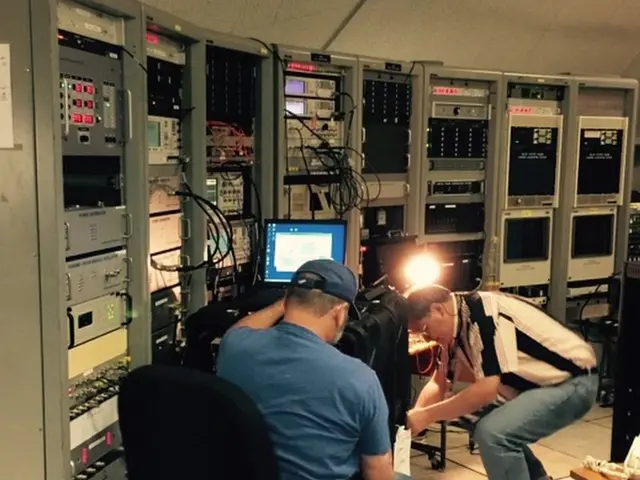Missouri's Attorney General vocally criticizes the $11 billion Grain Belt Express project, labeling it as a "financial exploitation for all Missourians."
Missouri Attorney General Andrew Bailey has expressed persistent criticism of the Grain Belt Express project, citing several reasons for his opposition.
On Tuesday, Bailey characterized the multibillion-dollar Grain Belt Express electric transmission project as a "financial rip-off" for Missourians. He claimed that none of the promises made to state regulators and the public have been fulfilled, and the project has failed to deliver the electrons necessary to power the transmission lines.
Bailey also voiced concern about the project's impact on Missouri agriculture, a crucial sector for the state's economy. According to him, the transmission line could harm agricultural lands rather than utilizing existing infrastructure for the project.
The Missouri attorney general further criticized the company's attempts to rebrand the project as an energy initiative aligned with the president's goals. He stated that the Grain Belt Express had initially been sold as a means to create renewable energy sources to meet the Green New Deal's objectives, but it has since switched its focus.
Despite the project's proposed benefits, such as providing 5,000 megawatts of additional U.S. energy delivery capacity, Bailey suggested that state regulators should not have approved the transmission line based on the information provided.
A Grain Belt Express spokesperson responded to Bailey's comments by stating that the President's energy emergency objectives are undermined by the attorney general's untruthful statements. The company highlights that the $11 billion project will deliver substantial energy cost savings and unlock 5,000 megawatts of much-needed American energy.
Invenergy CEO Michael Polsky has estimated that the Grain Belt Express will create more than 22,000 jobs from the construction of the line and its generation, with construction on the transmission line in Kansas and Missouri expected to begin next year.
The U.S. anticipates increased demand for electricity in the coming years, with consulting firm McKinsey & Co. projecting a more than 3% annual increase through 2040. Despite this, Bailey's criticisms remain focused on the project's perceived lack of benefits for Missouri, its impact on local farmers, and financial concerns related to taxpayer funding.
- Missouri Attorney General Andrew Bailey has raised questions about the Grain Belt Express project's financial aspects, stating that it could result in significant costs for Missourians, instead of delivering the promised energy savings.
- In the agriculture industry, Bailey concerns lie with the potential damage the transmission line could cause to agricultural lands, instead of utilizing existing infrastructure.
- Regarding the Grain Belt Express's shift in focus from renewable energy sources to meet the Green New Deal's objectives to aligning with the president's energy emergency objectives, Bailey maintains that the project should have been approved based on the initially presented benefits, which included job creation, energy savings, and increased energy delivery capacity.







